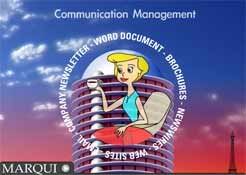Bloggers are not the same as mainstream journalists, but many of the same rules apply. Bloggers are supposed to put their biases upfront, whereas journalists have more hidden biases. Bloggers are supposed to disclose their relationships with advertisers in every possible way, whereas journalists can leave the readers to guess at them. Bloggers are supposed to bring a unique voice, whereas journalists are supposed to conform to a style book.
I have been a journalist all my life, but even before there were bloggers, I wanted to be one. More specifically, I wanted the freedom to report the news no matter what, to have an open dialogue with every reader, to remove the problems that prevent journalists from using all their abilities to a full extent. Blogging has truly changed my feelings about my chosen profession, making me see that more openness is possible, and that at least some segment of the public is prepared to accept that sort of openness. I have yet to see the Slashdot for magazines, but if I can, I will start it myself.
What I have wanted to do is take the lessons I've learnt as a reporter and editor, and bring those to the blogosphere. Most of the best bloggers fall under two categories: The expert and the industry. Some bloggers, like Jeremy Zawodny and Robert Scoble, fall under the industry category, of those "in the know", who bring a lot of important info from their companies, but are so trustworthy (and this is why they are so successful) that they can deliver opinions on their own company and their competitors that are given the full weight they deserve. Some bloggers, most notably John Battelle, are simply experts, who bring excellent analysis, and can also be trusted, but even more so, since there is little chance of impropriety. There are also professional bloggers, but there are very few of those outside of political blogs, since non-political blogs have very little revenue.
I aim to be one of the first successful reporter blogs. My blogs deliver news to the public about companies and industries that I am interested in. I aim to deliver as much news as quickly as I hear about it. I give my opinion (because the medium allows it), but the focus has and always will be on the news. I have no industry affiliation, and no expert degree to fall back on. My qualifications as a reporter are what I rely on, and as I build industry contacts, my ability to deliver improves.
However, there is one less I have been cognizant of since the first editorial board meeting I attended. Content does not support a paper. Money does. I work in an advertiser supported industry, and without advertisers I could not have a job, or an industry for that matter. That said, if I could not draw a line between advertisers and content, I would not be much of a newspaperman. I've received free movie tickets, cds, passes, interviews with celebrities, even flights, because an advertiser wanted us to cover them. While I am grateful for the freebies, it is always understood that the gratitude ends at the door. Once I enter "reporter mode", anything goes, and criticism is important.
I remember when I attended a press junket and asked questions of Chris Rock. Beforehand, I went to a fancy hotel, had an incredible free breakfast, hobnobbed quite a bit, and even got to bring along my girlfriend (as my "photographer", a common excuse). I enjoyed myself quite a bit, but when the interviewing started, all bets were off. I remember asking Chris Rock such a racially loaded question, that he looked like he was going to tear my head off before he would answer it. I got my quote, and I think even he'd admit he came off well, but I wasn't asking that question because I
didn't want to afford him the opportunity to say the wrong thing.
Earlier tonight, I went bowling. A local bowling alley is one of our most faithful advertisers, and as a result everyone on staff gets to bowl for free on Tuesdays. In return, they get a price break and extra bowling coverage. Does this mean we say nice things about them? Honestly, we've never said anything nice at all. We simply mention that there is bowling that goes on, and that our Editor in-Chief is our number one bowler (and drinker). Advertisers pay us for access to our readership, not for our support. Movie studios want reviews. Even if the reviews are bad, they want us to promote the movie by talking about it, even if we are talking trash.
I have no qualms about taking money for ads on this blog, because it is the way things are done in the media. One day, all popular blogs will have sponsors galore, and more and more people will be able to make a living by blogging. As of now, it is difficult to find funding for a blog. When I heard that
Marqui was willing to offer considerable sums to bloggers to just talk about them, I was intrigued. I contacted
Marc Canter, who is running the experiment, read the contracts and disclaimers, and realized this was a pretty straight up honest deal. Marqui could use the exposure. They rank 13 spots down in Google just for searches on their company name, and that says a lot about their internet presence. As Marc explained, the company is looking to make a splash, and this is an excellent way to do it. After all, you may have just discovered they existed by reading this paragraph.
This program isn't so much about promoting Marqui as it is about getting Marqui mentioned. Blogs are talking about the pay-for-blogging program, but people are noticing Marqui. Over the next three months, most of the blogosphere will find out exactly what Marqui does, even if they don't read Marqui sponsored blogs, because this is a unique ad campaign, and on the internet, uniqueness is everything.
As long as I can say whatever I want, then this is not a problem for me. And I certainly can. I can write "Marqui sucks" a hundred times over, and not only will I still get paid, Marqui will still be happy. In fact, criticism is actually stronger than praise, because it is more believable, and more controversial. If I don't like Marqui, I'm more likely to get linked to, and more likely to drum up serious discussion as to the merits of Marqui's product. It's win-win. I get money, they get noticed.
So, as of today, I get paid to mention them and their business. I'll explain the details, but suffice to say, this ain't gonna be InsideMarqui. I'll be comparing how Marqui relates to Blogger and search engines, how CMS factors into SEO, how Google and Microsoft and other of my favorite companies use CMS systems, and such topics. I want to use this as an opportunity to talk about CMS, an area I haven't given much coverage. And I certainly will write about Marqui's competitors and lay out their offerings as well. I won't lie. I'm doing it for the money, but I plan to make the most content wise out of my end of the bargain.
The difference to you? If you find CMS boring, skip those posts. They'll be very clearly marked. If you worry about my opinions, rest assured, I'll make it very clear that the only thing being paid for is the direction I'm looking in. What I see when I look in that direction will always be my honest reporting and opinion, and that's all anyone can ask for. This will be an interesting time, as a concept which is not here yet (blogging for cash) is being thrust out there, but it should prove fruitful.
Oh, and just to guilt trip any detractors, it isn't selfish greed that motivates this. I've got a girlfirend of many years, and all this money is going to our future. So when I post wedding pictures and explain how Marqui paid for the engagement ring, don't try and tell me it wasn't worth it.

 Steve Ballmer, in a speech at Michigan State University's Eli Broad College of Business Wednesday, notes that reports that Bill Gates receives 4 million spam emails a day were inaccurate, because he misspoke. From the
Steve Ballmer, in a speech at Michigan State University's Eli Broad College of Business Wednesday, notes that reports that Bill Gates receives 4 million spam emails a day were inaccurate, because he misspoke. From the 








 From
From 
 The Spoof is an online satire publication, much like The Onion. I've located some fun Microsoft stories from their archives to entertain everyone:
The Spoof is an online satire publication, much like The Onion. I've located some fun Microsoft stories from their archives to entertain everyone:



